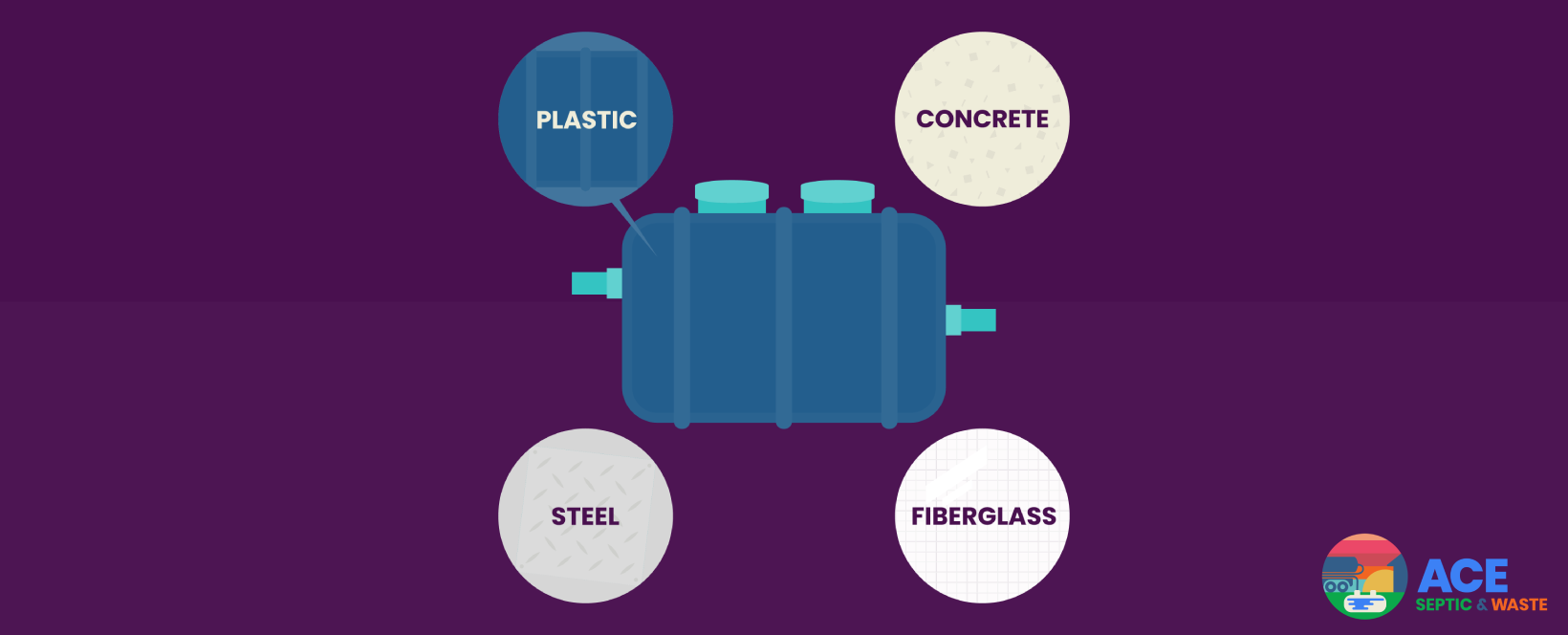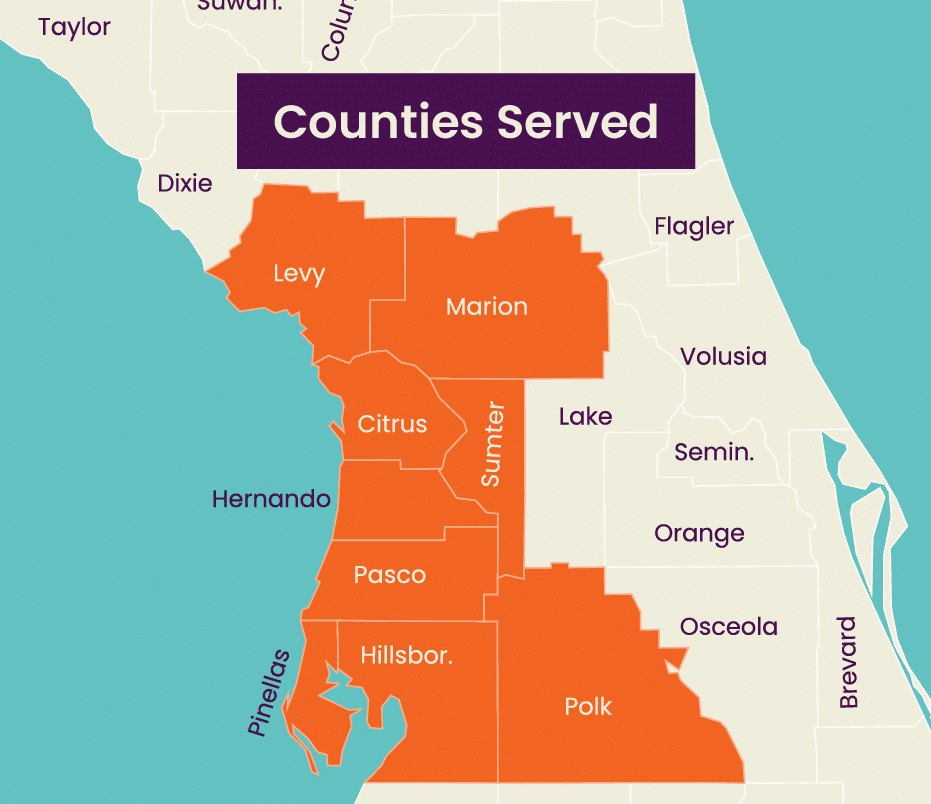Septic tanks play a crucial role in wastewater treatment, making the material used in their construction of paramount importance. If you’re a Florida homeowner looking to install or replace a septic tank, understanding the materials available to you is vital. In this article, we’ll explore the various septic tank materials and examine their pros and cons to help you make an informed choice for your septic system.
Types of Septic Tank Materials
Septic tanks are primarily made of four different materials: concrete, poly plastic (known as High-Density Polyethylene or HDPE), steel, and fiberglass. Each material has its unique characteristics, making them suitable for specific applications. Let’s dive into the details of these materials and their respective strengths and weaknesses.
Concrete Septic Tanks
Pros:
- Durability: Concrete septic tanks are known for their strength and longevity, often lasting several decades when properly maintained.
- Resistance: They are highly resistant to environmental factors, making them a reliable choice even in challenging conditions.
- Size Variability: Concrete septic tanks come in various sizes to accommodate different household needs.
Cons:
- Weight: They are considerably heavier than tanks made from other materials, which can complicate installation and transportation.
- Installation Costs: Due to their weight, installation costs can be higher than other tank types.
- Accessibility: Due to their weight, they must be delivered and set by a large crane truck. The proposed area must be accessible to the crane, which can be an issue for some households.
- Vulnerability: Concrete septic tanks are prone to cracking if installed incorrectly or if heavy objects are placed above them.
Plastic (High-Density Polyethylene) Septic Tanks
Pros:
- Lightweight: Poly tanks are easy to transport and install due to their lightweight nature, meaning cheaper installation costs.
- Corrosion Resistance: They are impervious to rust and corrosion, extending their lifespan.
- Watertight: HDPE tanks are less likely to crack or allow water infiltration.
- HDPE is CAT-4 rated, meaning it is especially suitable for use in areas like Florida, with its high pressure due to the elevated water table
Cons:
- Durability: While poly tanks are durable, they generally have a shorter lifespan than concrete tanks.
Steel Septic Tanks
Note: Steel tanks are not commonly installed today, but many older homes still use them.
Pros:
- Strength: Steel septic tanks are robust and less prone to cracking or damage during installation.
- Lightweight: Although heavier than plastic tanks, they are lighter than concrete, which can simplify transportation and installation.
- Fire Resistance: They have fire-resistant properties, which can be advantageous in certain situations.
Cons:
- Corrosion: Steel tanks are susceptible to rust and corrosion, leading to structural damage.
- Lifespan: They may have a shorter lifespan than concrete tanks, especially in areas with aggressive soil conditions.
Fiberglass Septic Tanks
Pros:
- Lightweight: Similar to plastic tanks, fiberglass septic tanks are light and easy to handle during installation.
- Resistance: They are highly resistant to rust, corrosion, and cracking.
- Smooth Surface: Like poly tanks, fiberglass tanks have a smooth interior surface that discourages waste buildup and simplifies cleaning.
Cons:
- Cost: Fiberglass tanks are often more expensive than some other materials.
- Limited Size: They are generally available in smaller sizes, which might not suit the needs of larger households.
- Not CAT-4 rated: Unlike concrete or poly plastics, fiberglass is not commonly used in Florida septic systems due to the elevated water pressure. Fiberglass tanks can buckle and pop the lid, damaging the tank. A buckled septic tank often requires a complete and expensive replacement.
- Special considerations: Fiberglass tanks can collapse if they are fully pumped dry. Service providers should be made aware if they are working with a fiberglass tank before maintenance.
Choosing the Right Material
We typically recommend using either concrete or poly as septic tank material for Florida residents. Check out this link for a detailed breakdown comparing concrete and HDPE materials.
In conclusion, septic tank materials significantly impact your system’s durability and efficiency. Each material offers unique advantages and disadvantages. When deciding on the ideal material for your septic tank, you must consider various factors, such as your specific water usage needs, budget, environmental conditions, and local regulations. If you need help determining which material is best for your situation, consulting with a professional septic service provider like ACE Septic & Waste is a wise choice. They can assess your property, provide expert guidance, and ensure a seamless installation.
In Florida, making the right septic choice due to environmental conditions, such as the water table’s fluctuation, plays a significant role in septic system performance and considerations. Working with knowledgeable septic experts like ACE ensures that your septic tank material aligns with local regulations and your property’s unique requirements.
Contact ACE Septic & Waste for Expert Guidance
Choosing the suitable septic tank material is a decision that should be made carefully, as it directly affects your septic system’s performance and longevity. To make an informed choice and ensure your septic system complies with local regulations, contact ACE Septic & Waste. With years of experience serving the Tampa Bay and Central Florida regions, ACE provides expert guidance and reliable septic services. Whether you need installation, maintenance, or repairs, ACE is your trusted partner in all things septic. Contact us today to ensure the success of your septic system.







